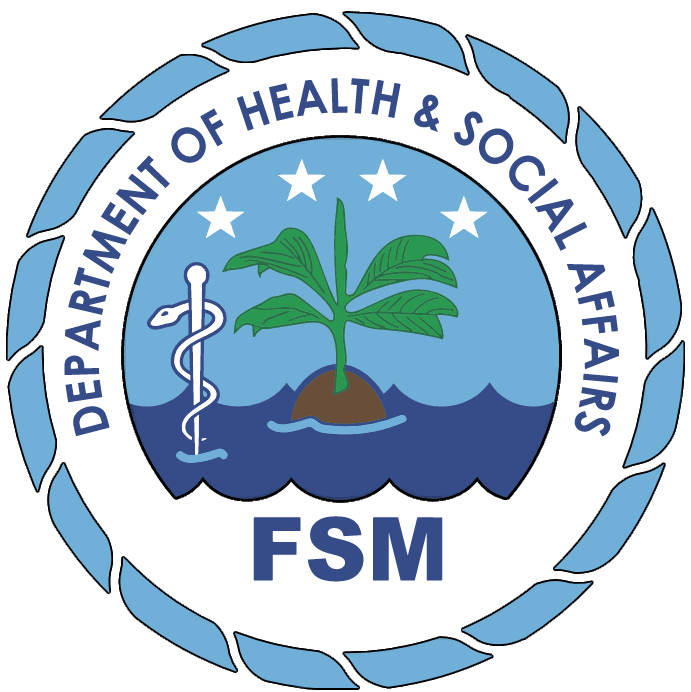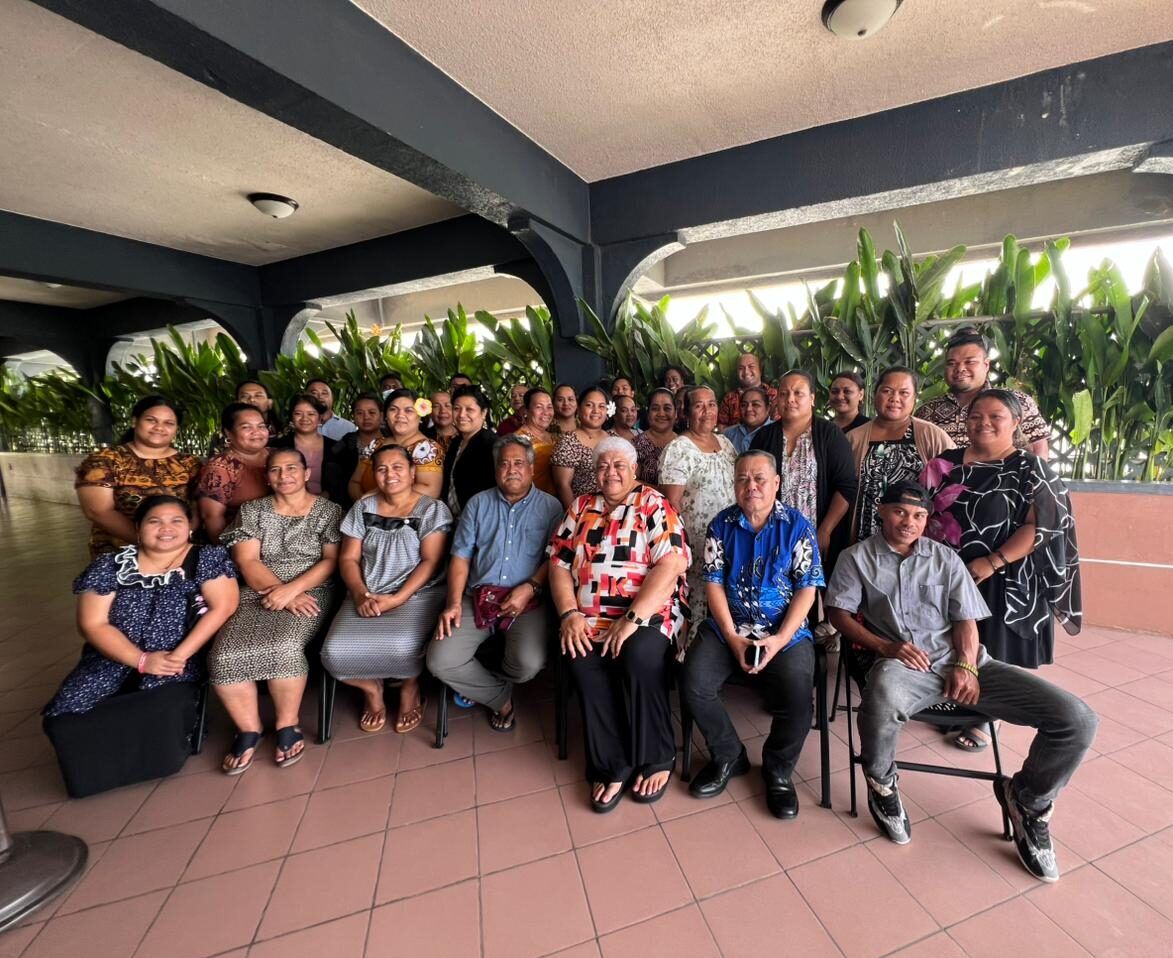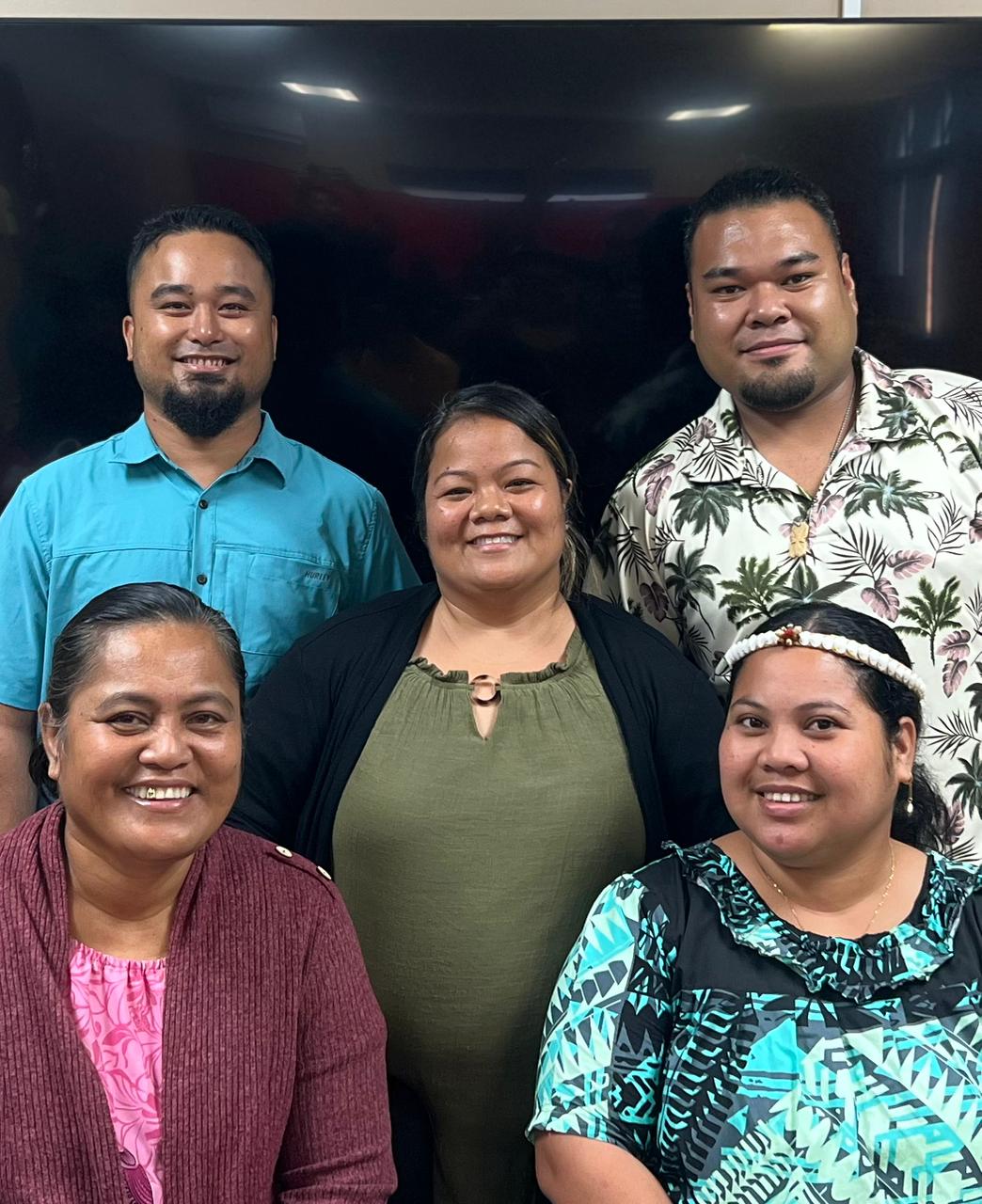Weno, Chuuk — Immediately following the successful conclusion of the 10th FSM Women’s Conference, the FSM National Communicable Diseases (CD) Unit convened its 6th Program Collaboration and Service Integration (PCSI) Meeting October 6-10, 2025 at the L5 Conference Room in Chuuk.
The week-long meeting brought together National and State-level staff from the Tuberculosis (TB), and Human Immunodeficiency Virus/Sexually Transmitted Infection (HIV/STI) Programs, and Viral Hepatitis, including program coordinators, laboratory managers, data clerks, and nurses from all four FSM states. Representatives from the Pacific Islands Health Officers Association (PIHOA) and fellows of the Pacific Public Health Fellowship Program (PPHFP) were also in attendance—underscoring the importance of partnership, mentorship, and capacity-building for FSM’s next generation of public health professionals.
Since the first PCSI meeting, FSM’s CD programs have achieved significant progress in improving data collection and reporting. Although Standard Operating Procedures (SOPs) are yet to be fully developed or updated, the programs have made notable strides toward digital transformation, standardizing reporting templates, improving data accuracy, and strengthening inter-program collaboration.
Throughout the week, both National and State programs presented updates highlighting key accomplishments, challenges, and action steps. Accomplishments included the completion of refresher trainings, expansion of public awareness activities, increased screening and treatment coverage, and stronger cross-program collaboration. However, persistent challenges remain—among them, shortages of program-dedicated physicians, confidentiality issues in managing TB/HIV/STI clients, weak contact tracing, and inaccurate inventory reporting. Moving forward, participants agreed on the need to develop unified SOPs and data systems between National and State levels, and to initiate regular capacity-building webinars to sustain staff development and program quality.
A major highlight of this year’s PCSI meeting was the active participation of laboratory personnel, including managers and technicians, who presented outcomes from their breakout sessions. Their inclusion—a first in PCSI history—marked a milestone in bridging long-standing data gaps between laboratory and program teams, reinforcing the “service integration” spirit of the meeting.
Another first for this year’s PCSI was the awarding of Participation and Completion Certificates to all attendees, recognizing their active involvement, dedication, and contribution to FSM’s
ongoing efforts to strengthen communicable disease programs nationwide. This new initiative not only celebrates individual achievement but also encourages continued engagement and excellence across all levels of public health service delivery.
Representatives from PIHOA and PPHFP also presented ongoing collaborative projects being implemented by fellows across the FSM, ranging from laboratory strengthening to disease surveillance and program support. PIHOA encouraged the health sector to consider hiring fellows upon completion of their fellowship, noting that they will be well-trained and ready to serve. National and State program teams commended the fellows for their commitment to advancing healthcare in their respective states.
To address delays in report submissions, a full session was dedicated to reviewing and clarifying program indicators and reporting definitions. National CD representatives presented the national indicators and standardized reporting templates used for departmental submissions, helping State program staff better understand reporting timelines, expectations, and the connection between their reports and national-level data.
The meeting concluded with a reception at Rachel’s Beach, celebrating the programs’ collective achievements and continued collaboration, followed by a team-building retreat at Pisiwi Island, which further strengthened inter-program relationships and morale.
The National Communicable Diseases Unit extends its sincere appreciation to the Chuuk Department of Health Services for their warm hospitality and logistical support. Participants closed the week with renewed commitment to applying lessons learned, strengthening systems, and continuing the shared mission of delivering quality health services for all the people of the FSM.



